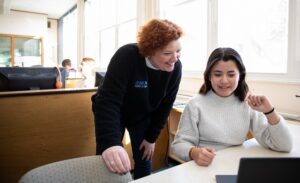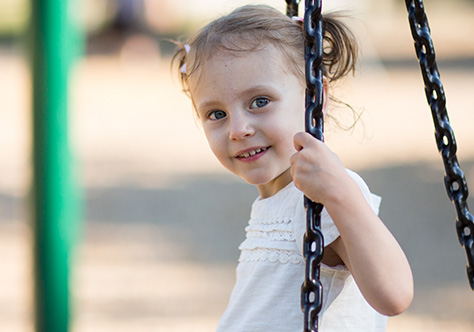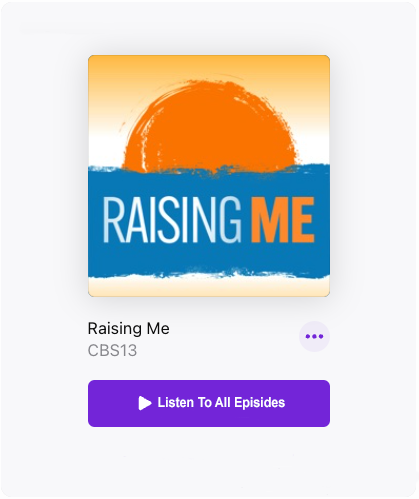Invest in your child’s financial future:
Build Money Skills for Life
The following resources support elementary students on a path toward lifelong financial wellness.
Invest in ME Reads

Invest in ME Reads is a family financial wellness program created by FAME in partnership with the Consumer Financial Protection Bureau (CFPB) to help parents and caregivers teach and discuss goals, saving, and financial skills. As part of Invest in ME Reads, FAME provides free books, educational resources, activities, and tips to all Maine public school students in grades two through five to share at home with their families.
For Kids
Second Grade
Free Books and Resources

Each year, all Maine second graders attending public school receive Those Shoes, a book that includes themes of saving, giving, and delayed gratification. A Parent Guide from the CFPB Money as You Grow Bookshelf program is included and offers conversation starters and activities.
Educational Activities and Tips

Financial Skills
Developing habits like planning, saving, and setting goals helps your child build financial wellness skills. By the end of elementary school, your child can:
- Understand the concept of “time” and “future”
- Plan ahead and save for what they want
- Understand saving and spending, how money is earned, and the power of giving
Pro Tip: Every day, you are teaching your child about money by modeling behaviors, and your daily financial decisions teach financial skills. Make your next visit to the grocery store, bank, or gas station a lesson.
Free Lessons and Activities:
- World of Cents – match coins and spend money
- Sesame Workshop – videos and fun lessons
- US Mint – games, activities and coloring books





Saving for Education
Did you know that children who have a college savings account are more likely to go to college, regardless of the amount saved?* Start small and encourage your child to dream big! By the end of elementary school, your child can:
- Understand that college costs money
- Learn that skills are valuable tools
- Identify places where they could go to college
Pro Tip: Teach your child about money and saving for the future by creating ways for them to earn and plan for spending and saving. An allowance for chores is a great way to get them started on a path to financial success.
Free Lessons and Activities:
- Meet the Money Monsters! – fun characters who teach kids important financial concepts
- Bingo on the Go – learn about money in your community
- Cha-Ching™ Money Smart Kids – games and videos that build financial skills





Planning for Education
You play a powerful role in guiding your child toward a successful future. The earlier your child begins to explore education and careers, the more likely they will be to achieve their goals. By the end of elementary school, your child can:
- Have conversations about goals and aspirations
- Discuss various jobs and related duties
- Understand that schools offer different programs
Pro Tip: Show your child that you value education. Getting to know their teacher (either in person or through email), attending school events, and making sure they arrive at school on time all demonstrate a commitment to lifelong learning.
Free Lessons and Activities:
- FAME’s Cash & Max coloring book or activity book – learn about education and future careers
- MAGtown – learn more about future careers.
- BizKids – fun games to help you learn about money
*Assets and Education Initiative, Building Expectations, Delivering Results: Asset-Based Financial Aid and the Future of Higher Education, in William Elliott (Ed.), Biannual report on the assets and education field, (Lawrence, KS: Assets and Education Initiative, 2013).
Participate in the Invest in ME Reads Survey
After you have explored the Invest in ME Reads resources, we invite you to take our brief survey so we can learn how this program has helped your family.


The survey is anonymous and subject to the Terms of Use for this website.
Third Grade
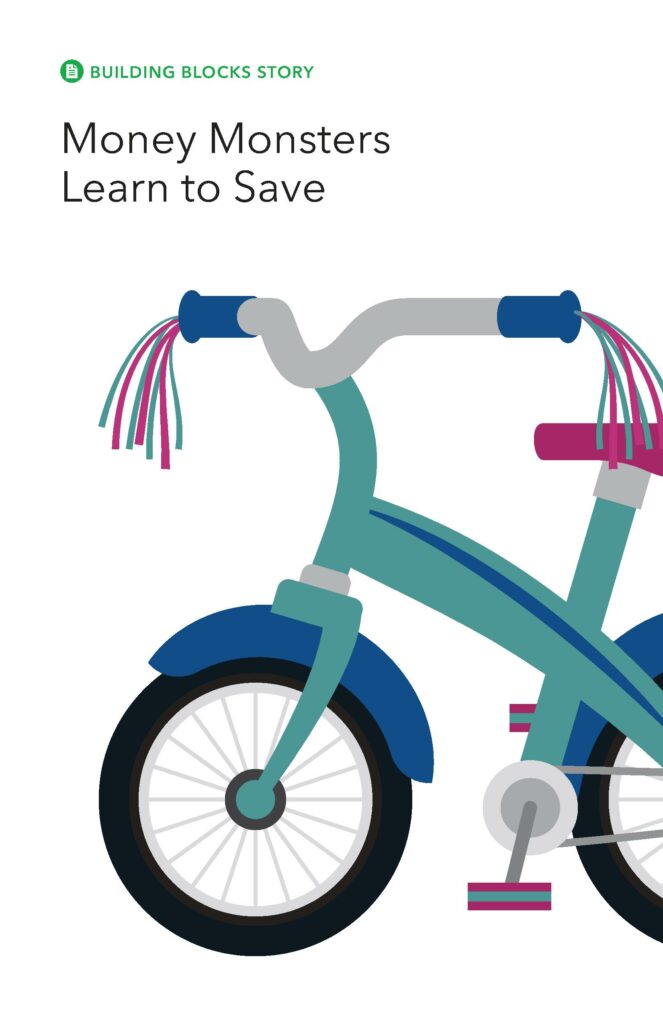

Free Books and Resources
Each year, all Maine third graders attending public school receive Money Monsters Learn to Save, a booklet which includes themes of saving, earning, and delayed gratification, and a set of Money Monsters stickers.
Educational Activities and Tips





Financial Skills
Developing habits like planning, saving, and setting goals helps your child build financial wellness skills. By the end of elementary school, your child can:
- Understand the concept of “time” and “future”
- Plan ahead and save for what they want
- Understand saving and spending, how money is earned, and the power of giving
Pro Tip: Every day, you are teaching your child about money by modeling behaviors, and your daily financial decisions teach financial skills. Make your next visit to the grocery store, bank, or gas station a lesson.
Free Lessons and Activities:
- World of Cents – match coins and spend money
- Sesame Workshop – videos and fun lessons
- US Mint – games, activities, and coloring books





Saving for Education
Did you know that children who have a college savings account are more likely to go to college, regardless of the amount saved?* Start small and encourage your child to dream big! By the end of elementary school, your child can:
- Understand that college costs money
- Learn that skills are valuable tools
- Identify places where they could go to college
Pro Tip: Teach your child about money and saving for the future by creating ways for them to earn and plan for spending and saving. An allowance for chores is a great way to get them started on a path to financial success.
Free Lessons and Activities:
- Meet the Money Monsters! – fun characters who teach kids important financial concepts
- Bingo on the Go – learn about money in your community
- Cha-Ching™ Money Smart Kids – games and videos that build financial skills





Planning for Education
You play a powerful role in guiding your child toward a successful future. The earlier your child begins to explore education and careers, the more likely they will be to achieve their goals. By the end of elementary school, your child can:
- Have conversations about goals and aspirations
- Discuss various jobs and related duties
- Understand that schools offer different programs
Pro Tip: Show your child that you value education. Getting to know their teacher (either in person or through email), attending school events, and making sure they arrive at school on time all demonstrate a commitment to lifelong learning.
Free Lessons and Activities:
- FAME’s Cash & Max coloring book or activity book – learn about education and future careers
- MAGtown – learn more about future careers.
- BizKids – fun games to help you learn about money
*Assets and Education Initiative, Building Expectations, Delivering Results: Asset-Based Financial Aid and the Future of Higher Education, in William Elliott (Ed.), Biannual report on the assets and education field, (Lawrence, KS: Assets and Education Initiative, 2013).
Participate in the Invest in ME Reads Survey
After you have explored the Invest in ME Reads resources, we invite you to take our brief survey so we can learn how this program has helped your family.





The survey is anonymous and subject to the Terms of Use for this website.
Fourth Grade
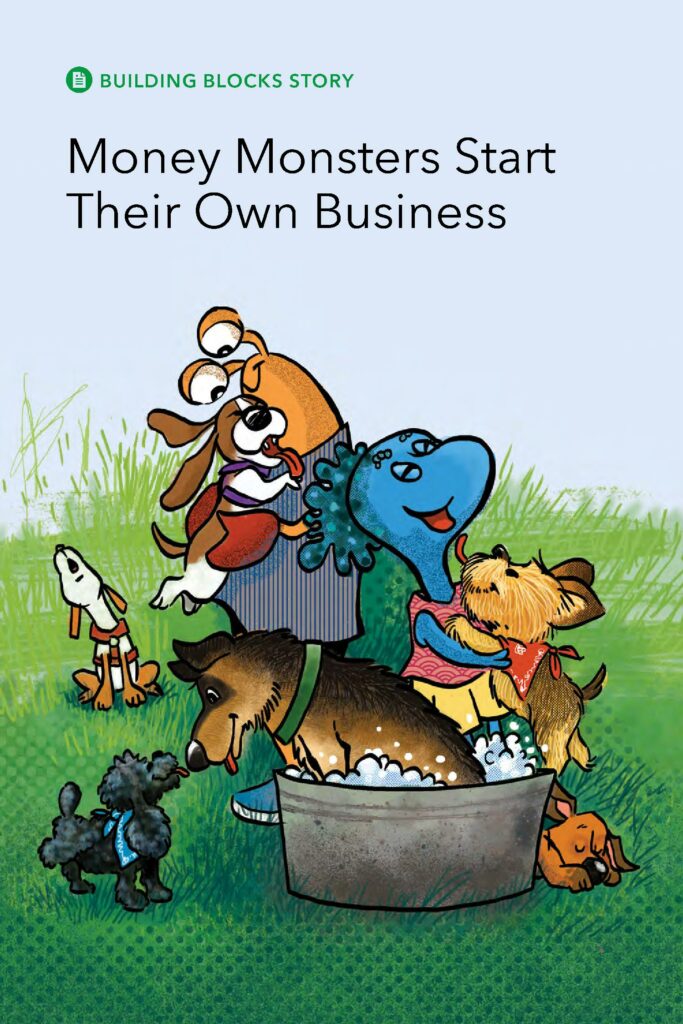

Free Books and Resources
Each year, all Maine fourth graders attending public school receive Money Monsters Start Their Own Business, which introduces students to goal setting, budgeting, and the challenges of entrepreneurship.
Educational Activities and Tips





Financial Skills
Developing habits like planning, saving, and setting goals helps your child build financial wellness skills. By the end of elementary school, your child can:
- Understand that purchasing decisions have costs and benefits unique to each individual
- Make financial decisions that align with their goals and values
- Feel confident spending and saving, knowing various methods for both
Pro Tip: Ask your child to set a goal for something he or she would like to purchase, talk about the steps it would take to get it, check the progress, and monitor whether that goal is still important.
Free Lessons and Activities:
- Thinking Money for Kids – games that teach money skills
- Centsables – a collection of fun games
- Hit the Road: a financial adventure game





Saving for Education
Did you know that children who have a college savings account are more likely to go to college, regardless of the amount saved?* Start small and encourage your child to dream big! By the end of elementary school, your child can:
- Understand that college costs vary widely, depending on the college and program
- Discuss degrees or training programs that align with their interests
- Understand how even a small amount saved adds up over time
Pro Tip: Bring your child with you to your local bank or credit union and open a savings account. Consider a “matching plan” for your child’s savings: you put in 25 cents for every dollar your child saves.
Free Lessons and Activities:
- Cha-Ching™ Money Smart Kids – games and videos that build financial skills
- Centsables – videos to help you make smart financial decisions
- Test Your Money Memory: a fun money quiz





Planning for Education
You play a powerful role in guiding your child toward a successful future. The earlier your child begins to explore education and careers, the more likely they will be to achieve their goals. By the end of elementary school, your child can:
- Understand that people have different job choices and incomes, depending on their knowledge, skills, education, and experience
- Discuss jobs/careers that align with their interests
- Understand basic college-related terms
Pro Tip: If you are attending college yourself, or know someone who is, visit the campus and talk with your child about college. Help them make a list of nearby colleges.
Free Lessons and Activities:
- Claim Your Future® – an online game designed to teach kids about future careers, education, and money
- MAGtown – learn about future careers
- FDIC’s How Money Smart Are You? – learn about everyday financial topics
*Assets and Education Initiative, Building Expectations, Delivering Results: Asset-Based Financial Aid and the Future of Higher Education, in William Elliott (Ed.), Biannual report on the assets and education field, (Lawrence, KS: Assets and Education Initiative, 2013).
Participate in the Invest in ME Reads Survey
After you have explored the Invest in ME Reads resources, we invite you to take our brief survey so we can learn how this program has helped your family.





The survey is anonymous and subject to the Terms of Use for this website.
Fifth Grade


Free Books and Resources
Each year, as a gift from FAME, all Maine fifth graders attending public school receive World’s Coolest Jobs, a book that encourages students to explore future careers. A Caregiver Guide helps to start a conversation with your child about their future and career possibilities. It also includes a fun career profile activity!
Educational Activities and Tips





Financial Skills
Developing habits like planning, saving, and setting goals helps your child build financial wellness skills. By the end of elementary school, your child can:
- Understand that purchasing decisions have costs and benefits unique to each individual
- Make financial decisions that align with their goals and values
- Feel confident spending and saving, knowing various methods for both
Pro Tip: Ask your child to set a goal for something he or she would like to purchase, talk about the steps it would take to get it, check the progress, and monitor whether that goal is still important.
Free Lessons and Activities:
- Thinking Money for Kids – games that teach
- Centsables – a collection of comic books
- Hit the Road: a financial adventure game





Saving for Education
Did you know that children who have a college savings account are more likely to go to college, regardless of the amount saved?* Start small and encourage your child to dream big! By the end of elementary school, your child can:
- Understand that college costs vary widely, depending on the college and program
- Discuss degrees or training programs that align with their interests
- Understand how even a small amount saved adds up over time
Pro Tip: Bring your child with you to your local bank or credit union and open a savings account. Consider a “matching plan” for your child’s savings: you put in 25 cents for every dollar your child saves.
Free Lessons and Activities:
- Cha-Ching™ Money Smart Kids – games and videos that build financial skills
- Centsables – videos to help you make smart financial decisions
- Test Your Money Memory: a fun money quiz





Planning for Education
You play a powerful role in guiding your child toward a successful future. The earlier your child begins to explore education and careers, the more likely they will be to achieve their goals. By the end of elementary school, your child can:
- Understand that people have different job choices and incomes, depending on their knowledge, skills, education, and experience
- Discuss jobs/careers that align with their interests
- Understand basic college-related terms
Pro Tip: If you are attending college yourself, or know someone who is, visit the campus and talk with your child about college. Help them make a list of nearby colleges.
Free Lessons and Activities:
- Claim Your Future® – an online game designed to teach kids about future careers, education, and money
- MAGtown – learn about future careers
- FDIC’s How Money Smart Are You? – learn about everyday financial topics
*Assets and Education Initiative, Building Expectations, Delivering Results: Asset-Based Financial Aid and the Future of Higher Education, in William Elliott (Ed.), Biannual report on the assets and education field, (Lawrence, KS: Assets and Education Initiative, 2013).
Participate in the Invest in ME Reads Survey
After you have explored the Invest in ME Reads resources, we invite you to take our brief survey so we can learn how this program has helped your family.





The survey is anonymous and subject to the Terms of Use for this website.
For Adults
Discover our extensive free financial wellness resources designed to support you on your journey toward financial freedom.
Participate in the Invest in ME Reads Survey
After you have explored the Invest in ME Reads resources, we invite you to take our brief survey so we can learn how this program has helped your family.





The survey is anonymous and subject to the Terms of Use for this website.
